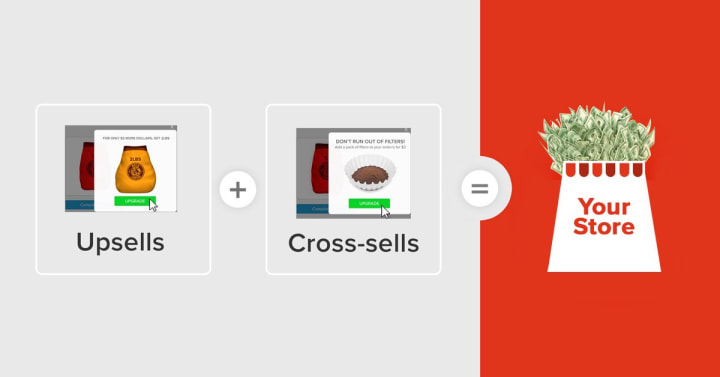
It’s that time of year again, when eCommerce businesses ramp up their marketing in time for Black Friday, Cyber Monday, and the holiday rush to follow. Last year’s Cyber Monday alone resulted in $10.8 billion of spending, up 15.1% from the previous year. This year looks to be even bigger as online businesses apply what they learned from the pandemic to continue to grow throughout the 2021 holiday season.
However, there are some common pitfalls that can prevent businesses from performing their best around the holidays. Instead of focusing on discount blitzes alone, businesses should look for ways to increase customer loyalty and improve customer experience with strategies they can benefit from the whole year through. Today, we’ll take a look at some common mistakes eCommerce businesses make around the holidays and offer tips on how to improve performance.
Avoid the common pitfalls
As consumers, we are well-versed in the Black Friday marketing script. Huge sales, mind-blowing discounts, and free giveaways abound. We may no longer wait in line at the mall at 5 am for stores to open their doors, but the digital equivalent is still alive and well. While focusing on discounts and mass advertising can help companies boost their revenue around the holidays, there are more sustainable ways to go about it.
For one thing, when most people get a sales-y looking email, they ignore it. Or worse, it gets filtered straight to their junk folder. When shoppers are looking for deals around the holidays, they might be a bit more likely to take the bait. But click-through rates can still be substantially improved with more personalized engagement tactics.
What’s more, shoving discount after discount down your target audience’s throat will not be maximally beneficial for your business. You shouldn't always be aiming to sell them the cheapest thing, even on Back Friday. Offering discounts and free gifts can be a good way to entice new customers, but you also need to be thinking about how likely those customers are to buy again in the future.
Another final common mistake - particularly for new and small businesses - is underestimating how the holiday rush will impact operations. Properly anticipating and planning ahead for the influx of web traffic, burdens on supply chains, shipping, etc. are vitally important to avoid disaster. After all, your marketing efforts will all be for naught if you can’t make sales because of technical or logistical difficulties.
To that end, read on to learn how to better prepare for the holiday season so you can avoid these common errors.
Steps to take instead
The holidays are certainly a good time to look for a revenue boost, but you should be thinking about how your seasonal business strategy fits in with your larger goals. You can formulate all aspects of your marketing and sales to thrive during the holiday rush and continue to be profitable into the next year.
Audit your sales funnel

There is no better time to perfect your sales process than before the holidays. Prospects will be seeking out particular products more actively than other times of year, making them more likely to convert. So, you should be looking for gaps in the conversion process to avoid losing sales.
One important area to audit is your checkout process. Walk through your own system like a customer would, paying attention to the ease of accepting payments and loading speeds during transactions. If your users can’t fill their online cart, apply any discount codes, and check out within a few clicks, you have some work to do.
Similarly, if you use a PayPal button, ApplyPay icon, or the like, make sure it is obvious so users know they have multiple payment options. Also, never add hidden fees or charges at the end - prices (including shipping) should be apparent from the get-go to avoid cart abandonment.
Upsell and cross-sell

Thanksgiving weekend is known for its sales and discounts, but this doesn’t mean to have to short-change yourself to entice customers. Online businesses can make use of upselling and cross-selling to increase the average purchase value while still offering customers great deals.
For example, if you sell small electronics and you notice that customers often buy a particular phone and headphones together, consider offering the two as a bundle. You can even throw in a phone case as a free gift to round out the offer. Customers will be pleased to get the three items for cheaper than if they were sold separately, and you just sold two products instead of one.
What’s more, the benefits of Black Friday aren’t just about the sales. A lot of shoppers may take advantage of a freebie promo to make one purchase and get some giveaway. But you should be thinking about each new customer not just as a sale but as a new lead with the potential to turn into a loyal, long-term customer.
In addition to marketing sales and deals, you should also try to get prospects to respond to other calls-to-action. Get your prospects to sign up for your newsletter or join a discount club to get a deal. This way, you can start to learn about their interests and preferences and tailor your future marketing to keep them engaged.
Be consistent
A big problem many eCommerce businesses face is inconsistency or complexity in their omni-channel marketing. You will likely be presenting discounts codes and other marketing messages on your website, various social media platforms, industry partner sites, etc. Inconsistencies can become particularly pronounced if you are trying to get too complicated with discounts and promos.
Using different codes across different channels will result in technical difficulties, so make your life easier and keep your discounts simple. If you offer codes, make sure they work as expected so people don’t abandon their carts or inundate your customer service chats.
There are ways to make the deals fun without having too many tiers or add-ons. For example, you can create a sense of urgency with countdown timers so customers know when your deal will start. And even if you have short-term deals for Black Friday and Cyber Monday, consider launching other promotions that last longer so you can get a healthy mix of buyer types. Not everyone is into the 24 hour blitz sale, and some people may need more time to decide.
Prepare your website

Your website will impact your Google rankings, which will impact your visibility during a time when tons of customers are coming around with money to spend. This makes website maintenance a crucial part of any holiday strategy.
For one thing, it’s important to optimize for mobile to improve user experience for your online store. Mobile accessibility is not only a Google ranking factor. It is also the way about half of your prospects might be doing their shopping.
You also should consider how an influx of traffic will impact your website availability and speed. Check with your hosting provider to make sure there are suitable resources to accommodate the holiday rush. For example, according to web development expert Alex Williams of Hosting Data, cloud hosting will help reduce the risk of downtime with heavy web traffic.
“It’s simply far less likely that several servers all across the world will crash at the same time, thus sending your web site down the chute,” says Williams. “If your site suddenly needs a surge of resources to handle a spike in traffic - no problem. Take advantage of viral attention without worrying about your site squeezing your bandwidth, as a shared hosting setup would automatically do.”
If you don’t use cloud hosting, consider having a backed up server site if the main one goes down. The same goes for things like your payment software or other external systems you rely on. You can even integrate social media messaging as a customer service chat option or use chatbots to automate less complex customer service queries to decrease the burden on your staff during the holidays.
Conclusion
Don’t fall into the typical trap of forcing blowout sales at the expense of your business. The holiday season is a busy and lucrative time of year for online businesses, but that doesn’t mean you should skimp on your usual dedication to customer experience and engagement. Follow these tips to perfect your holiday strategy and make the most of the upcoming rush.






Comments
There are no comments for this story
Be the first to respond and start the conversation.